Content Warning: This article contains discussions of sexual assault.
The first episode of The Umbrella Academy’s fourth and final season is titled ‘The Unbearable Tragedy of Getting What You Want.’ And after the way this season went down, I wonder if this was an admission of guilt on the show’s part.
A year after its Netflix debut, UA’s fourth season remains an incredibly frustrating piece of television. Because on the one hand, there’s some great character development (particularly with Viktor and Diego), payoffs to series-long mysteries, and some good old-fashioned Hargreeves hijinks. Furthermore, it’s a massive improvement over the glacially paced season three, which could have easily cut a couple of episodes and been none worse the wear. That, coupled with Allison’s characterization going out the window, an incredibly bleak tone, and little to no characterization of the Sparrows outside of Ben and Sloane (seriously, they could have fixed so much of S3 with a standalone Sparrows episode), and you had easily the worst season of the show.
On the other hand, despite all of its improvements on its predecessor, season four was rushed. There’s no other way to say it; the reduced episode count strains the story to the point where even the aspects that do work really well end up getting cut off early and fail to stick the landing as a result. This isn’t just my opinion; showrunner Steve Blackman confirmed some elements of the story had to be left on the cutting room floor because of logistical constraints.
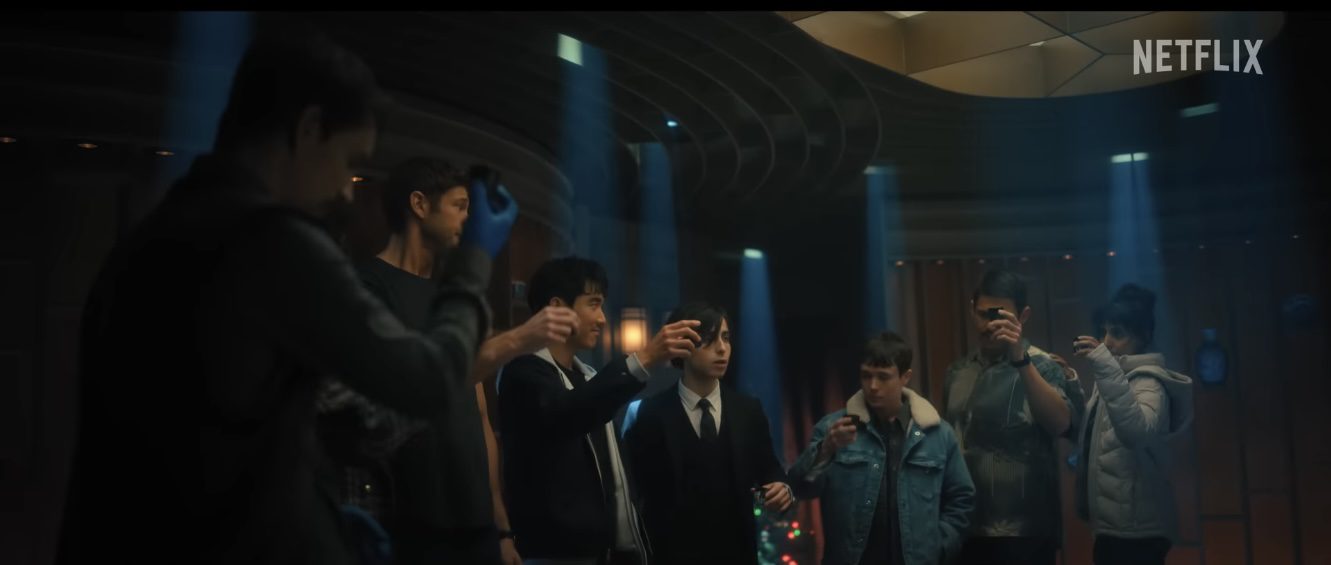
I think the best way to describe season four is like an exam paper written by someone who didn’t plan out their time properly and then had to rush to finish it. The season does start really strong, and where we find the Umbrellas after the six-year time jump is spot-on in regard to their characterization; Luthor is living alone in this timeline’s run-down Umbrella Academy building, making ends meet as a stripper. Diego and Lila are both going through a mid-life crisis. Allison’s career has nosedived, and her husband has walked out on her. Klaus has become a hypochondriac. Ben is in prison for a crypto scheme. Viktor is running a bar, but his love life is in shambles. The only person who’s done moderately well for themselves is Five, who’s working for the CIA.
I love that this is how we find the Hargreeves post-time skip. Where everyone ends up makes complete sense. Take Luthor; him clinging to the past with Sloane and maintaining the old UA headquarters makes total sense for someone who never moved out of home. Sure he’s made progress since season one, but at the end of the day he has no real life skills outside of being a superhero – of course he’s going to struggle to function as an adult.
The same goes for the rest of them; Klaus loses his immortality, so of course he becomes terrified of every minor danger. Viktor has spent most of his life without powers, so of course he adjusts the best. Ben goes from being a famous superhero to a nobody, so of course he starts a crypto scheme to regain that kind of that success, and of course he’s the one to jump at getting his powers back.
As the season went on, though, every character runs into the same problem; there was simply not enough time to tell their stories well. I’ll give credit where it’s due; the ideas that drives these character arcs are inherently interesting. Viktor confronting his issues with Reginald, Diego and Lila struggling with the switch to being parents, Klaus getting a chance to work through his trauma – all of these are great ideas! With the right execution, these arcs could’ve been the perfect way to cap off the series as a whole.
Let’s take Diego, for example. When we meet him in season four, he’s going a through a mid-life crisis. He’s unhappy in his job as a delivery driver, where he’s being grilled for his lackluster performance by his boss. On top of that, he’s arguing with Lila all the time. Despite everyone telling him to be grateful for what he has, he’s yearning for a life of adventure with the CIA. All of this lines up with Diego’s character; while he has always sought out action, he does understand the responsibilities of adulthood. Even way back in season one, he called out Luthor for not moving out of home and getting a job.
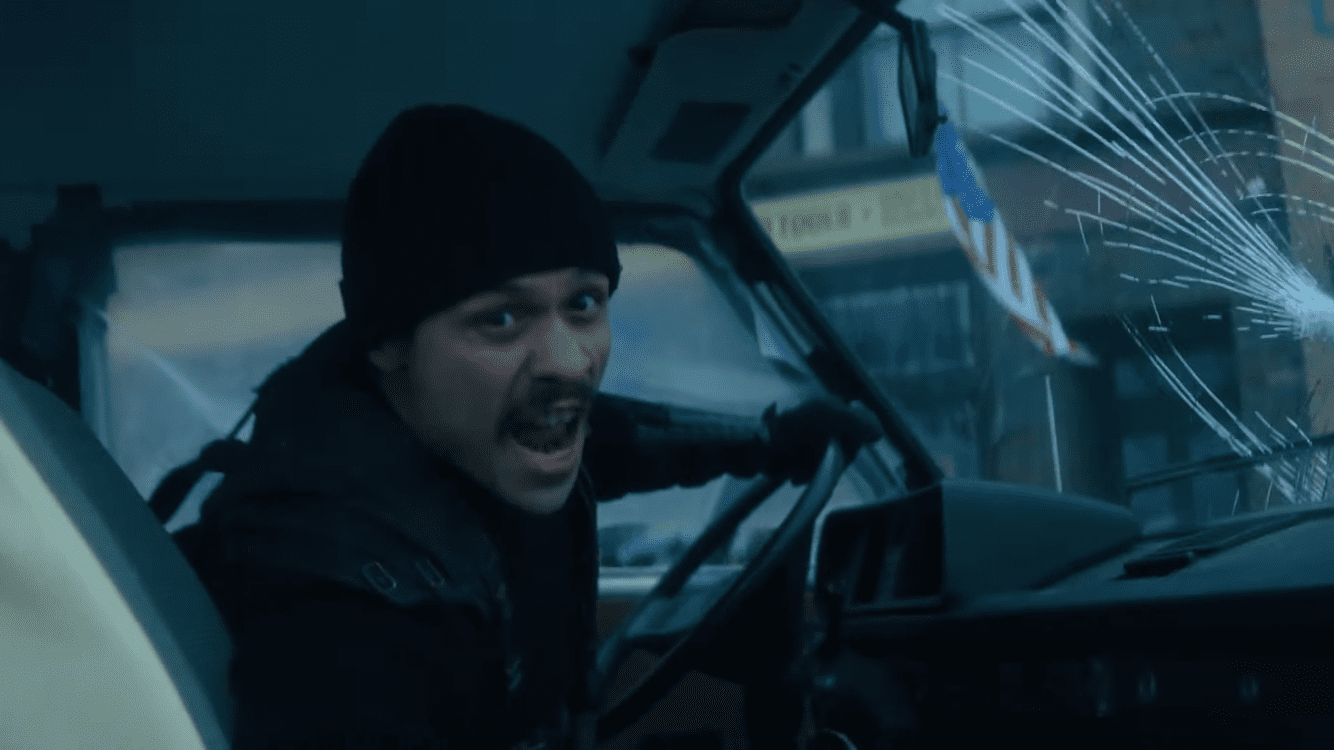
That being said, while he’s certainly well-meaning, he can be a bit impulsive and not think things through. Season two was a great example; when he gets stranded in 1960s Dallas, he decides to stop the JFK assassination, without thought to the damage that would have on the timeline. In season three, his…parenting of Stanley is questionable at best. So, it makes sense for him to not truly think through what joining the CIA would mean. It might be a way out of mediocrity and back to his previous adventure-filled life, but it would come at the loss of time with his family. It’s only when he and Luthor visit the CIA that a disgruntled agent gives him a dose of reality that he realizes everyone was right, and that he should be grateful for what he has. Which, in turn, leads to him reconciling with Lila, and vowing to be a more present father and partner. Predictable? Maybe, but it’s a very full circle moment for Diego. He starts the series as a loner, and ends it as a family man.
I love when stories do this. When character arcs are pulled off correctly, it can be very satisfying to see how far they’ve come. Look at Viktor – his arc in season four revolves around him working through his personal issues with his Dad. He gives old Reggie a verbal/superpowered thrashing, proves his worth as an Umbrella, and finally gets validation from his father. And while there’s certainly an argument to be made about the problematic implications of seeking validation from abusive parents, the show does point out this is not the same version of Reginald who treated Viktor so poorly. He’s no saint, but he does make a genuine effort to do better than OG Hargreeves. At the end of the day, season four caps of Viktor’s arc very well. He begins the series as an outsider to the team, and ends it as a central member.
If this had been the pattern for every Umbrella, then sure – this would have made a solid final season. There’s still the ending to consider, but I’ll get to that later. The problem is that aside from these two, the arcs really struggle to hit their mark with the reduced runtime of the season. Klaus, for one, has a fairly interesting arc this season. He’s so dedicated to staying sober that he initially doesn’t even get his powers back. And when he does, he’s not happy about it. He then goes off to settle his debts, and eventually has to confront his childhood trauma of being locked in a crypt. Normally, this would work just fine; most seasons of the Umbrella Academy have the characters spend several episodes running around before slowly being drawn back together. Here though, with everyone else trying to save the world and Klaus off doing his own thing, it feels very jarring and out of place. With ten episodes, this would’ve worked just fine, but with six? No.
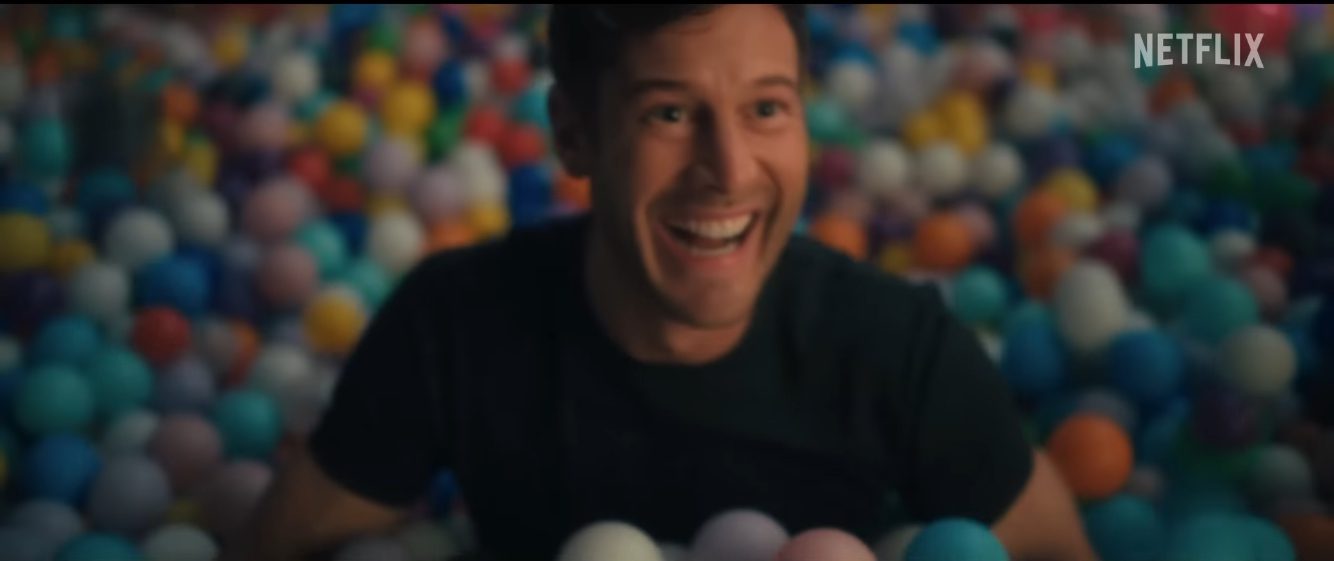
The cracks really start to show with Luthor, who’s arc this season was…what, exactly? He goes from being an aging, down-on-his-luck stripper stuck in the past to…I mean, I guess he’s more confident in himself? Look, not everything in a character arc needs to be explicitly spelled out for the audience – subtext can be a wonderful thing when done right. But if I’m sitting there at the end of the season, scratching my head as to watch actually happened on a character level, then there’s a problem.
The showrunner of UA, Steve Blackman, has confirmed that Luthor’s original character for season four was cut short due to the reduced episode count;
“I never got to do the Luther-Sloane storyline that I wanted to do this season. I wanted Sloane to be alive, just not remembering Luther, and him trying to get her to love him again. For logistical reasons, we just couldn’t make it work. We just couldn’t make it happen.” [1]
This checks out. It would have been a perfect way to cap off Luthor’s arc – he starts the series as an awkward, bumbling loner who struggles to connect to his siblings. Ending it with him having grown to the point of rebuilding a loving relationship from the ground up would show just how far he’s come. But we don’t get that. We get a few mentions of Sloane, what barely constitutes a character arc, and an ending so unsatisfying that even Luthor’s actor, Tom Hopper, called it ‘incomplete’.
Speaking of incomplete…let’s talk about Allison.
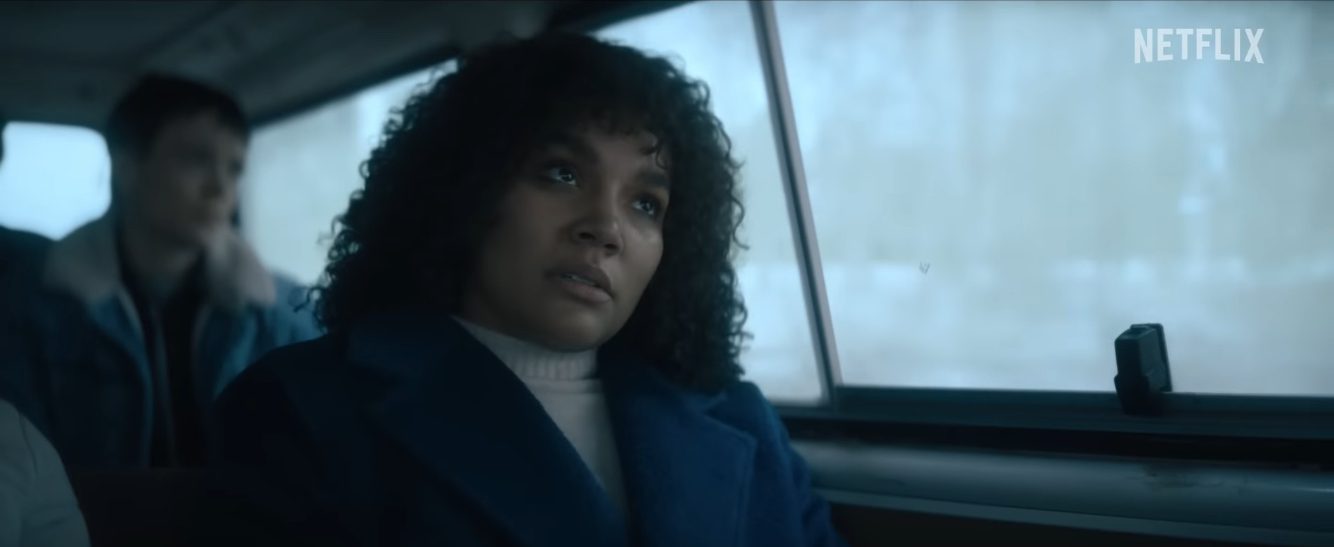
Season four attempts to give Allison a redemption arc after her going completely off the rails in season three. I say ‘attempts’ because Allison’s so-called redemption arc doesn’t actually showcase any growth on her behalf. At no point in the season does she ever truly apologise to any of the Umbrellas, nor does she ever take accountability for her actions. While she’s a great deal less insufferable than in season three and has some nice moments with Claire and Klaus, there’s never any real effort on her behalf to make amends for what she’s done. In the finale, there’s a brief moment where she and Viktor acknowledge each other, having seemingly put aside their differences…and that’s it.
Redemption arcs work when characters actually put the time and effort into making amends. Zuko is the gold standard for a reason; time and time again, he is tested and chooses to do the right thing. When he joins Team Avatar, he never makes excuses, never passes the blame of to anyone else, and emphatically apologises for his actions. Allison does nothing even remotely like this; she never apologises for murdering Harlan, barely says a word to Luthor, let alone an apology, and at one point she even yells at her family that she’s sick of being the bad guy – conveniently forgetting everything that’s she done.
Structurally, her ‘arc’ is a complete mess, and the show never follows up on what she did in season three. Honestly though, I don’t think more episodes would have fixed the issue. If she’d actually spent some time with Viktor and a real, honest conversation about murdering Harlan in cold blood and being absolutely revolting towards him throughout season three, that might have worked. But with Luthor, she crossed a line that could not be walked back when she used her powers to force him to kiss her. No redemption arc could (nor should) grant a character forgiveness for committing sexual assault. What Allison did was utterly unforgivable, and to add insult to injury, Luthor never brings it up. I’m not going to go into a spiel about the implications here regarding male victims of sexual assault, because frankly it makes me a bit sick. And that’s not even addressing how Klaus is essentially forced into prostitution…
But while Allison’s arc was the biggest dumpster fire this season from a writing (and frankly, ethical) perspective, it wasn’t the most reviled arc overall. That honour goes to Five and Lila, who might just be the new poster children for ‘creatively it made sense because we wanted it to happen.’
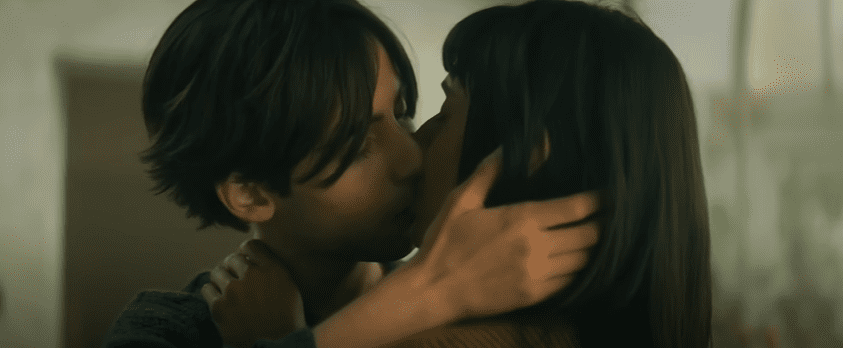
As mentioned previously, Five and Lila start the season in places that make sense for their characters. Five is doing well for himself at the CIA, which checks out given his years at the Commission. Lila, on the other hand, is struggling with the switch from assassin to stay-at-home mum. The two end up crossing paths at a meeting of the Keepers organization – Five’s investigating them for the CIA, and Lila’s there to get out of the house. Typical Umbrella Academy hijinks follow, where at one point Diego suspects Lila of cheating on him. Lila makes fun of this as Diego’s suspect was Five, and the prospect of the two ending up together is laughable…
And then that’s exactly what happens.
There’s…there’s just so much that’s wrong with this. I get Five struggling to form a romantic connection with someone, given that he’s got decades more life experience than women his (biological) age. But Lila?!? The woman he’s had an antagonistic relationship with since season two, whose parents he killed, who has made it very clear how much she despises him? Sure, they’ve patched things up a bit with six years going by and her parents being alive in the new timeline, but it’s still a baffling creative choice.
Maybe, MAYBE I could have been okay with this if any effort whatsoever had been put into it – but there isn’t. No arguments, no addressing the years of antagonism between the two, no real attempt to make this feel earned. All the audience gets is a montage of them spending six years searching the inter-timeline subway together before settling down.
If that wasn’t bad enough, Five’s behavior during this whole debacle is uncomfortable, to say the least. He lies to Lila about the notebook that may give them a way home, putting his own happiness above her desire to see her family again. Then, when they do return, he’s jealous of Lila’s relationship with Diego and more than a touch possessive of her. This conflict escalates to the point that when everyone else is trying to stop The Cleanse, Five and Diego end up fighting, until Lila intervenes and tells Five that she’s choosing Diego. Because making Lila a prize to be fought over is just what this season needed…
Finally, there’s Ben. Compared to some of the other Umbrella, he has a decent arc. He begins the season getting released from prison. After he gets his powers back, he meets Jennifer and bonds with her. In the process, he stops being such a selfish prick and shows that underneath his insecurities, he does have a heart…
…and then he dies.
Again.
Look, the problem isn’t that he died. Ben’s already ‘died’ twice – him finally passing on after saving Victor in season 2, and with the flashback to the Jennifer incident in season 4. Both were great story beats; the former was a really sweet way to close out OG Ben’s character arc, and the latter gave the audience some long-awaited answers, while propelling the story forward.
The problem is that unlike those two deaths, Ben’s death in S4 makes his character arc feel meaningless. All of that work, and for what? There’s no reward for the work he’s put in, or for the audience for sticking with him. While this is frustrating in and of itself, this is part of a larger issue with S4, specifically…
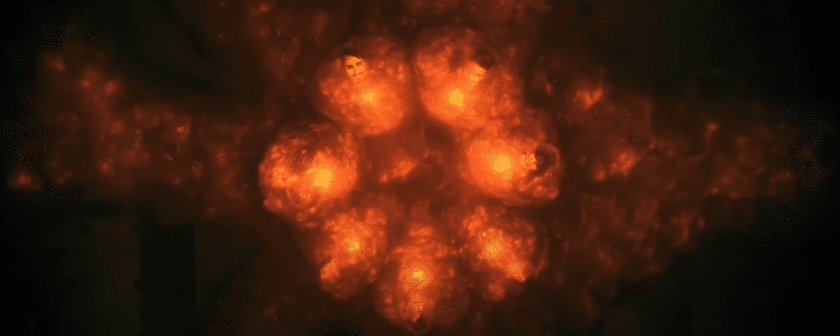
THE ENDING
What was easily the most frustrating aspect of season four was its ending. Maybe, just maybe I could have handled the rushed character arcs if they’d had satisfying endings…but they don’t. Every member of the Academy dies. Well, technically they’re erased from existence, with a hint of reincarnation, but the result is pretty much the same.
Look, I’m all for taking risks in storytelling, and killing off your whole cast is about the biggest you can take. When done well, unhappy and/or bittersweet endings can make for fantastic stories. I remember back when Rogue One came out, I was genuinely thrilled when I had the ending spoiled. A Star Wars movie willing to go that dark was unheard of, and the whole cast dying cemented its differences from the rest of the franchise.
That said, those kinds of endings have to be earned. Rogue One is a gritty war movie, and never shies away from the realities of conflict, nor does its prequel Andor. The Umbrella Academy, on the other hand, was never that kind of show. It had serious moments, sure, but it was by and large goofy and heartwarming. The tonal dissonance between the series at large and it’s ending just does not work. Showrunner Steve Blackman said that this came down to how he wanted to explore heroism;
“Are you really a superhero if no one ever knows that you exist? What is the definition of superheroes? Are you truly a superhero if no one ever knows that you’re the ones who save them?” [2]
The concept of unrecognized heroic actions is interesting. Looking to Game of Thrones, Ned Stark and Jaime Lannister are both fantastic examples; Ned let people believe he broke his wedding vows in order to keep Jon Snow safe, and Jaime is reviled as an oath breaker for killing the Mad King. What makes these examples work so well though is that the audience is given time to watch the consequences of these actions play out; Jon Snow is a strain on Ned and Catelyn’s marriage, and Jaime’s public image as the Kingslayer is an ongoing source of strife for him.
We don’t get that with The Umbrella Academy. If they’d lived beyond the finale to lead ordinary lives, sure, that could work. But with them gone, there’s no opportunity to explore these ideas. As stated above with Ben, there’s no payoff to their character arcs and everything they’ve gone through. All we get is a series of cameos. Which works for characters like Agnes and Hazel…but breaks down when you realize the Handler gets a happy ending. The Handler, whose track record includes stealing children from their families, gets to live, but our heroes don’t?! Come on.
I’m not averse to main characters dying, and honestly, I was waiting for a last-minute twist where Five sacrificed himself to save everyone else. He’s dedicated his entire life to protecting his family; him finally receiving a chance to rest akin to Tony Stark’s sacrifice in Avengers: Endgame would have been very fitting. There’d be a nice through line from his desire to retire in season three and would have drawn the series full circle; the story starts with Five’s return, and ends with his true death. The other characters could go on to have the happy endings that they’d been building towards the entire series, and they would have felt earned because of Five’s sacrifice.
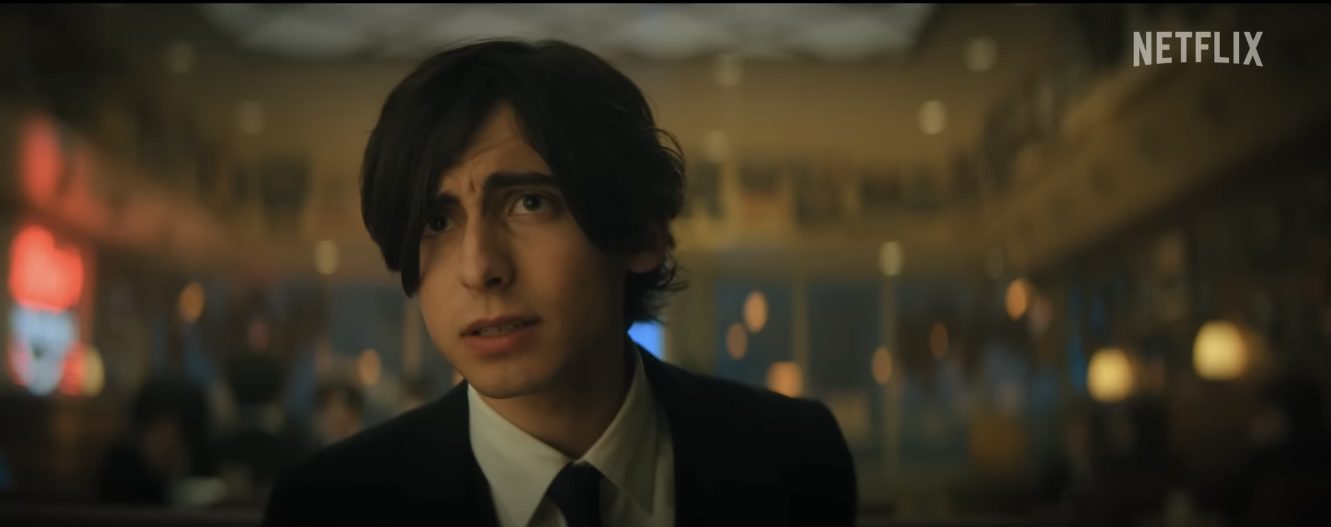
We don’t get that, though. It’s not the protagonists that get the reward, but the side characters. The heroes that the audience has spent four seasons invested in, through highs and lows, get a maybe. Maybe they were reincarnated, maybe they’ll live again…or maybe not. It’s a frustrating, disappointing and ultimately hollow conclusion to Viktor, Luthor, Diego, Allison, Klaus, Five, Ben and Lila’s stories.
Great endings can smooth over uneven storytelling, but rushed, empty ones? They can tarnish the legacy of once-great shows (looking at you, Game of Thrones). People won’t remember The Umbrella Academy for the Hargreeves siblings’ goofy hijinks, impromptu dance sequences, or their endless bickering. They’ll remember a rush to the finish line that soured years of great television.
References:
[1] The Umbrella Academy: Sloane’s Season 4 Absence Explained – Capital
Images courtesy of Netflix
Have strong thoughts about this piece you need to share? Or maybe there’s something else on your mind
you’re wanting to talk about with fellow Fandomentals? Head on over to our Community server to join in
the conversation!

